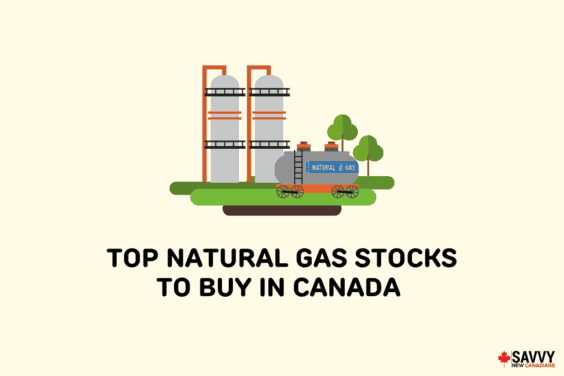If you are looking for the best options trading platforms in Canada, this article offers suggestions to get you started.
Choosing between brokerage platforms can be challenging as their strengths vary when considering core features, including trading commissions, order types, research tools, market data, and customer support.
For options trading, in particular, you also want to ensure the platform is easy to navigate, especially if you are new to options investing.
For advanced traders, check that it supports the complex strategies you want to execute.
Best Online Brokerages For Options Trading in Canada
Below, I cover 10 of the best options trading platforms in Canada.
1. Moomoo
Moomoo is a top options trading platform in Canada offering low-to-zero trading fees. It also offers flexible options strategies, enabling users to place single, multi-leg, and conditional orders in one transaction.
The Moomoo app and desktop platforms are packed with options trading tools and features, helping traders conduct in-depth research, gain market insights, and manage complex options orders and positions.
They include:
- Flexible options strategies: There are 11 types of options strategies, including spreads, straddles, strangles, cover calls, long calls, and short calls.
- Customizable options chains: Real-time options chains enable traders to find the latest NBBO, transaction details, and filters for options contracts.
- Insightful P/L analysis: Get an overview of your options strategy performance, including profit/loss range, and breakeven points at expiration.
- Unusual options activity: Alerts you of significant market changes, high volume options transactions, block buys and sales from institutions, etc.
- Options price calculator: Use various models and real-time Greeks to estimate theoretical values and potential price changes.
- Options Volatility Analysis: You get in-depth insights into implied & historical volatility, Mean IV, volatility premiums, etc.
- Most Active 0DTE Options: Real-time view of 0DTE options for high-volume Index ETFs.
Moomoo options trading fees range between $0-$0.9/contract (min $1.5/order), making it one of the low-fee options trading platforms in Canada.
In addition to options, you can use Moomoo to trade ETFs, stocks, bonds, indexes, international equities, and more.
Promotion: You get up to a $2,400 cash reward when you open a Moomoo account and fund it.
2. Questrade
Questrade is one of the best trading platforms in Canada for options, stocks, ETFs, and other financial securities. As of this writing, Questrade manages over $30 billion in assets and opens 200,000+ new accounts every year.
Beginners and experienced investors can choose from several Questrade trading platforms, including:
- Web-based platform (Questrade Trading)
- Questrade Edge
- Questrade Global
- Questrade App
Advanced traders looking to deploy multi-leg option strategies can use Questrade Edge. The standard trading commission for options trades is $9.95, plus a $1 fee per contract. Active options traders get a discount and can choose between fixed or variable fee schedules:
- Fixed fee: $4.95 + $0.75/contract
- Variable fee: $6.95 + $0.75/contract
There is also a $89.95 monthly fee for advanced live-streaming market data, which is rebated partially or fully depending on the commissions you pay each month.
Note that U.S. and Canadian data packages are offered separately ($89.95 USD or CAD).
- Account minimum: $1,000
- Inactivity fee: $0
- Ranking: Best options trading platform for beginners and experienced traders in Canada
- Promotion: Get a $50 trade credit
For you to trade any assets on Questrade, you need to deposit at least $1,000 in your new account. For options trading, it has four approval levels with different minimum balance requirements.
Questrade’s options levels and the minimum balances needed are:
Level 1: No minimum. You can use long calls and puts, long straddle/long strangle, short covered calls, and long married put strategies.
Level 2: No minimum. Strategies available include long covered call, short married put, long collar, and short collar (in addition to the ones available in level 1).
Level 3: $5,000 CAD minimum. Additional strategies available at this level include long/short vertical call/put, long butterfly, long condor, short butterfly, short condor, short iron butterfly, short iron condor, long iron butterfly, and condor.
Level 4: $25,000 CAD minimum. Also includes short calendar call/put, short diagonal call/put, long/short calendar call/put with European options, long/short diagonal call/put with European options, short straddle, short strangle, and short option.
Learn more about Questrade in this review.
3. Qtrade
Qtrade Direct Investing is owned by Aviso Wealth and is the main brokerage platform used by credit unions in Canada.
It offers multiple investment securities, including options, GICs, ETFs, mutual funds, stocks, and new issues.
Qtrade investors can place trades using the website or mobile app (Android and iOS devices). Also, a trial account is available for 30 days if you want to get a feel for how the platform works.
The base fee for options trades on Qtrade is $8.75, plus a $1.25 fee per contract.
Active traders who place 150 or more trades per quarter or have $500,000+ in assets qualify for Investor Plus pricing, which is $6.95 + $1.25 per contract.
- Account minimum: $0
- Inactivity fee: $25 per quarter (waived in some situations, e.g. if assets are up to $25,000 or you contribute at least $100 monthly)
- Ranking: Best options brokerage platform for customer support
- Promotion: Up to $150 cashback bonus when you join
Learn more in this Qtrade review.
4. TD Direct Investing
TD Direct Investing is a division of TD Waterhouse Canada which is owned by The Toronto-Dominion Bank. It is one of the best options trading brokerages owned by a big bank.
TD Direct Investing supports a variety of investment products, including options, mutual funds, stocks, GICs, ETFs, and bonds.
Depending on your experience with online trading, you can choose from one of its three trading platforms: WebBroker, TD app, and the Advanced Dashboard.
All three platforms offer multi-leg options strategies (up to 2 legs); however, the Advanced Dashboard also supports streaming market data, advanced option analytics, charting, and order types (26 pre-defined option strategies).
The base trading commission for options is $9.99 plus $1.25 per contract.
Active traders who place at least 150 trades per quarter pay $7.00 + $1.25 per contract.
The fee for real-time streaming level 1 and 2 data varies from free to as high as $229/month, depending on your trading activity, asset size, and data package.
- Account minimum: $0
- Inactivity fee: $25 per quarter if your total balance is less than $15,000
- Ranking: Best big-bank options broker
- Promotions: N/A
Learn more in this review of TD Direct Investing.

5. Interactive Brokers Canada
Interactive Brokers, aka IBKR, is a global securities firm with operations in 33 countries and more than 135 markets.
For the purposes of this article, it is the best online brokerage for options trading if you are an advanced trader.
IBKR’s trading platforms include a standard web application, Trader Workstation, IBKR mobile, and various API solutions.
While all these platforms can be used to place option trades, Trader Workstation is your go-to for advanced options orders, algorithmic trading, and analysis.
Some of the options trading tools on Trader Workstation include write/rollover options tool, OptionsTrader, Option Portfolio, Options Strategy Builder, Options Strategy Lab, Volatility Lab, and more.
The mobile app is also very versatile, offering level II market data, technical analytical tools, streaming news services, alerts, and access to third-party research.
Trading commissions on IBKR for options in US and Canadian markets vary based on volume:
| Volume | Canada | U.S. |
| <=10,000 | $1.25 per contract | $0.25-$0.65 per contract |
| 10,001-50,000 | $1.15 per contract | $0.25-$0.50 per contract |
| 50,001-100,000 | $1.05 per contract | $0.25 per contract |
| =>100,001 | $1 per contract | $0.15 per contract |
The minimum fee per order in Canada is $1.50 CAD, while for U.S. trades, the minimum is $1.00 USD.
Note that the tiered pricing for U.S. trades also varies based on the premium.
In addition to trading commissions, other regulatory and exchange fees may apply.
While commission-free options trading is not available in Canada, these are some of the lowest fees you will pay when trading options.
Advanced market data package fees vary from free to as high as $120.75 USD per month.
- Account minimum: $0
- Inactivity fee: $0
- Ranking: Best options trading platform for advanced traders
- Promotion: N/A
Read more about this platform in our detailed Interactive Brokers review.
6. Weathsimple Trade
Wealthsimple Trade is Canada’s best options trading platform for beginners looking for a basic, simple platform to buy and sell options contracts.
The platform offers commission-free trading of stocks, ETFs, crypto, and low-fee options trading on popular U.S.-listed stocks.
Currently, options trading on Wealthsimple Trade are only available through the Wealthsimple mobile app, and users can trade options through their self-directed registered and non-registered accounts.
Only basic long call and long put options trading strategies are available on Wealthsimple Trade for a limited set of contracts. The platform offers no option contracts on dual-listed securities or indices.
Wealthsimple Trade options contract fees are $2 per contract for users with a balance under $100,000 and $0.75 per contract for users with more than $100,000 in assets.
- Account minimum: $0
- Inactivity fee: $0
- Ranking: Best options trading platform for beginners in Canada
- Promotion: Get a $25 bonus when you deposit $150 or more within the first 30 days.
7. National Bank Direct Brokerage
Owned by the National Bank of Canada, National Bank Direct Brokerage offers some of the cheapest ways to trade options in Canada.
Its main trading platform offers various trading tools, including Trading Central, Market-Q, Options Play, Decision-Plus, alerts, watchlists, and more.
The standard commission for options trades is $0 plus $1.25 per contract, with a minimum of $6.25 per transaction.
- Account minimum: $0
- Inactivity fee: $100 per year if asset balance is less than $20,000 as of May 31 each year
- Ranking: Cheapest bank-owned options trading platform
- Promotion: N/A
Get more details in our National Bank Direct Brokerage review.
8. CIBC Investor’s Edge
CIBC Investor’s Edge is another bank-owned brokerage platform for options trading in Canada.
Compared to TD Direct Investing, it has lower standard trading fees. You can use the CIBC Investor’s Edge trading platform to screen and filter assets, access research reports, and advanced charting tools.
The trading commission for options is $6.95 plus $1.25 per contract.
If you qualify for active trader pricing (make more than 150 trades/quarter), you pay $4.95 + $1.25 per contract.
- Account minimum: $0
- Inactivity fee: $100 per year if your account balance is $25,000 or less
Learn more in this review of the CIBC Investor’s Edge platform.
Some other options trading platforms to consider in Canada include:
9. RBC Direct Investing
RBC Direct Investing is a top options trading platform in Canada owned and managed by the Royal Bank of Canada, and it’s excellent for intermediate options traders and investors.
Tradable assets on the platform include options, stocks, ETFs, mutual funds, and more. You can access and trade options contracts on RBC Direct Investing via the RBC mobile app or desktop web interface.
You get free level 1 and level 2 quotes, research reports from RBC Research and Morningstar, and Trading Central technical analysis tools. The platform also offers a demo account to practice options trading risk-free with virtual funds.
RBC Direct Investing’s available options trading strategies include call options and put options. You can also write covered calls and naked puts, but options spread strategies are not allowed.
The downside is that RBC Direct Investing options contract fees are high. Regular fees are $9.95 + $1.25 per contract, but active traders making 150+ traders per quarter pay a discounted fee of $6.95 + $1.25 per contract.
- Account minimum: $0
- Inactivity fee: $25 per quarter
- Promotion: NA
10. BMO InvestorLine
BMO InvestorLine is a good options trading platform in Canada owned by the Bank of Montreal, and it’s great for intermediary and experienced traders.
The platform offers options trading, stocks, ETFs, mutual funds, and fixed-income assets and is accessible via its desktop web interfaces and the BMO Invest App.
The BMO InvestorLine Self-Directed platform offers real-time research & alerts from BMO Capital Markets, Morningstar, and S&P Global Ratings. It also offers other trading tools, including watchlists, stock screeners, analyst ratings, performance tracking, and fundamental analysis tools.
Active traders making 15+ trades per quarter or investing $250,000+ qualify for the BMO 5 Star Program, which offers exclusive perks, including.
- BMO Active Trader and the BMO Active Trader Pro platform for advanced charting
- Pricing discounts
- Capital Markets TSX60 research
- Dedicated 5-star support
- Real-time 1 and level 2 market data and quotes
- Real-time streaming options chains, strategies, and Greeks
That said, BMO InvestorLine options contract fees can get quite expensive. The platform levies a flat fee of $9.95 + $1.25 per contract unless you qualify for the BMO 5-star program to realize pricing discounts
- Account minimum: $0
- Inactivity fee: $25/quarter
Options Explained
An option is a derivative, a contract that gives the buyer the right, but not the obligation, to buy or sell the underlying asset by a certain date (expiration date) at a specified price (strike price).
Corporate Finance Institute.
The two main types of options are calls and puts.
A call option gives you the right to buy the underlying asset (e.g. a stock) at a specific price on or before a specific date.
A put option gives you the right to sell the underlying asset.
Depending on how your options perform relative to the price of the underlying asset (stock) and the cost of the options contract (i.e. premium), you can choose to:
- Buy or sell the stock at the strike price, i.e. exercise the option
- Sell the option to another investor before expiration
- Allow the option to expire worthless
How Do Options Work?
Options contracts are generally priced per 100 shares or units of the underlying asset.
Call Options:
Assuming that your favourite company’s stock (stock A) is currently selling at $70 per share and you expect it to rise in the coming months.
You decide to buy one “call option” at a strike price of $70 for $5 per share. Since the option contract comprises 100 shares, you pay $500 ($5 x 100 shares) for the contract (i.e. the premium).
Your bet pays off, and stock A’s price rises to $85 before the expiration of your contract.
Since you have the right to buy 100 shares of stock A at $70, you exercise this right, buy 100 shares at $70 and sell them for $85 each.
Theoretically, your profit per share is $10 (i.e. $15 minus the $5 premium you paid initially), and $1,000 total, for a 200% return.
In this scenario, you only make a profit if the stock rises above $75.
If the stock does not budge in price until expiration or falls, your losses are limited to the $500 premium.
Put Option:
You can also play this in the reverse by buying a “put option” if you believe the company’s stock is set to decline.
Let’s say you buy one put contract at the $70 strike price for $500.
If the price falls to $55 on or before expiration, you can exercise the right to sell 100 shares of stock A at $70 by buying it at $55 and selling for $70 each. This makes for a $1,000 profit ($1,500 minus the $500 premium).
Your breakeven price is $65.
Advantages and Disadvantages of Options Trading
The top advantage of options trading is leverage. They enable investors to access a large number of shares by paying a small portion of their underlying value.
Thus, trading options contracts can help you generate significant upside and profit with a small move in the stock price, with losses only limited to the option’s premium.
Conversely, options are complex financial instruments that require much effort to understand and price and are usually considered advanced investment vehicles reserved for professional, experienced investors.
How To Choose The Best Options Trading Platforms in Canada
There are several factors that you should consider when choosing the best options trading platform in Canada, including:
Commission & fees
Some brokers may offer commission-free options trading, but most platforms will charge an options trading fee per contract. Others may charge extra fees for advanced options trading tools, features, or data.
If you’re an active trader betting on several contracts, these fees can quickly add up. So make sure you check and understand what the platform charges.
Options-specific tools and resources
If you’re a beginner, you’ll probably prefer a simple, easy-to-use options trading platform. But if you’re an intermediate or advanced trader, you may need a full-featured platform that offers a full suite of options-specific tools and resources.
Supported options strategies
To mitigate risk, some options trading platforms limit the options trading strategies you can use. Whether you want to speculate or hedge against a stock or ETF holding, you need to choose a platform that supports your trading style.
Educational content
If you’re new to options trading, you’ll need to learn a lot to understand how options work and master a particular trading strategy. So, you need to choose a platform that offers a full range of educational resources, like articles, videos, webinars, etc.
Options Trading Strategies
Top options strategies used by pro investors to make money include:
- Long calls and puts
- Covered call and protective puts
- Options spreads
- Writing naked options
Should I Invest in Options?
The two examples described above are the most basic options strategies available. It gets increasingly complex, with some strategies exposing you to unlimited downsides (losses).
Unless you know what you are doing, my advice is to stay away from options trading until you have learned the basics.
One other thing to consider is leverage. Some brokerages require you to use a margin account for complex options trades.
While borrowing using a margin account can amplify your profits, it also does the same to your losses.
In addition, you could have a margin call and be forced to close out your positions.
Methodology
We do our best to provide investors with unbiased reviews and ratings. In our choice of the best options trading platforms, we considered multiple key factors, including educational content, research tools and reports, supported strategies, analysts’ ratings, and trading commissions.
Additional factors reviewed include the availability and usability of mobile apps, trading technology, portfolio tracking features, and more.
Best Options Brokers in Canada FAQs
The best stock trading platform in Canada is Questrade. For beginners, the best stock trading app for no trading commissions is Wealthsimple Trade.
Questrade is one of the best options trading platforms in Canada. It allows you to trade advanced options strategies.
Yes, Wealthsimple Trade now offers options trading.
If your RBC Direct Investing account is approved for options trading, you can place options orders and use margin.
Yes, you can use paper trading for options on brokerage platforms that allow you to open a demo trading account.
Related:







